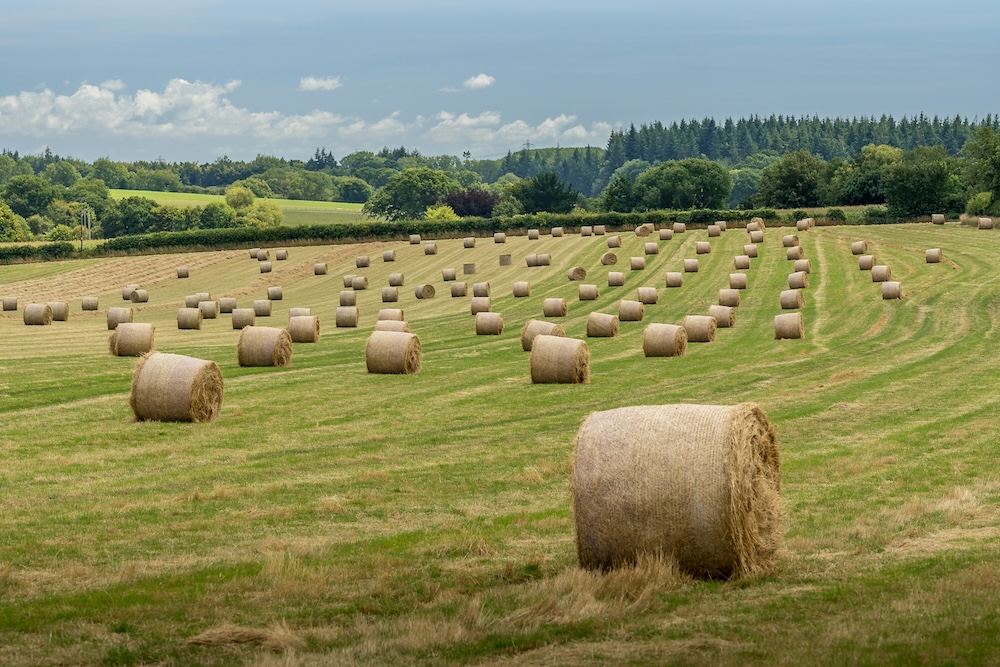Economist Calvin Jones calls for a new national conversation on rural Wales.
Rural Wales is in bad shape. Low incomes and a lack of economic opportunity endure. Poverty, hollowed towns, a lack of services, and the out-migration of the young are the consequences. So schools close as young families leave, and seaside towns pivot ever more strongly to respond to the volatile but crucial economic demands of tourists. Planning policy, legislation and funding for investment proves inadequate to prevent environmental degradation, which then requires a full-stop on rural housing development to prevent further damage, for example through phosphate overload, thus, further restricting opportunities for the young to stay close. Meanwhile, rural businesses are typically small, under-capitalised, and dependent on a handful of markets, customers and products – or indeed on direct subsidy. And much rural economic activity is about to be disrupted – or destroyed – by a combination of climate impacts (and consequently, urgent mitigation and adaptation policies), farming-sector demographics, and the multiple consequences of a fragmenting international order. We face the prospect of a potentially chaotic transformation of rural Wales – and one that might further disadvantage local communities and embedded firms, despite recent Welsh Government attempts to rebalance economies towards the local. A new approach is well overdue.
The negative impacts of over-tourism and the exploitation of nature are just the latest episode in a series of raw deals experienced by rural areas worldwide in the industrial age. Urban areas rely on rurality for a huge range of mission-critical raw materials: food, minerals, energy and labour. Throughout history, the same pattern repeats: rural resources are extracted to fuel the high-consumption lifestyles of the man (usually) about town, and those in the countryside are then told they are poor, backward and uncultured. Rural Wales does not even make its own decisions.
We face the prospect of a potentially chaotic transformation of rural Wales – and one that might further disadvantage local communities and embedded firms, despite recent Welsh Government attempts to rebalance economies towards the local.
The period both within and outside the EU continues for Wales a tradition of production based on a handful of for-export commodities, and a sector shaped by outside interests, that has endured since Tudor or even Norman times. Meanwhile, from a political perspective, the demographic dominance of the cities and Valleys has meant that, through the age of devolution, rural Wales has not mattered overmuch for those that govern Wales. Thus, rural issues struggle for salience and visibility. It has taken a decade since Brexit for a new farming support scheme to emerge, and that, so far, only in part. Politically, we only notice the countryside when it becomes a problem.
Rural Wales is, like many other rural places, in an odd and dual position. A place of long-time political disinterest, appearing on the news mostly as an economic or sustainability problem, and producing stuff that (with some exceptions) is only saleable at prices which barely (or don’t even) cover costs. Yet at the same time, our rural landscape is of increasingly clear value to Britain’s urban populations as a restorative bolthole, as a supplier of low carbon energy, and within Wales as a cultural locus. Meanwhile, we cannot meet a zero net carbon commitment, or respect and repair ecosystems and biodiversity, without a deep transformation in rural production and land use. Change is inevitable. This could go one of two ways. A more diverse and autonomous rural Wales could emerge, building on local objectives to deliver wellbeing, nature and climate-enhancing production and consumption systems that are more self-sustained and globally just. History, however, tells us this is much the less likely option, particularly in market-friendly contexts where citizens have been long downgraded to consumers. More likely is an un- or badly planned transition that sees an increasing role for well-resourced outside interests (corporations, governments and people) purchasing assets for extremely specific purposes – carbon offsetting, energy generation, tax breaks, occasional holidays, lifestyle-retirement – that connect not at all with, and may even cut across, the objectives and values of embedded communities. Hence, we need a step-change in rural engagement and action – by government, people and business.
Innovative. Informed. Independent.
Your support can help us make Wales better.
Tir Dyfodol: Our Future Land
In a report earlier this year I pointed to actions that might help envision a better rural future, and then help us move towards it. First is understanding where we are and why progress has been so slow. I suggested a deep and holistic dive into the ability of the planning and land use system to deliver better ecological and climate functions was needed. Where is the voice for nature in these processes, and is it as strident as the voice for jobs? And is there sufficient capacity and capability in responsible organisations – local authorities, Natural Resources Wales, our National Parks – to understand the complex relationships between human activity and nature – ecologists, flood risk experts, specialist planners? If not (and the answer is very much ‘not’), can a central ‘once for Wales’ pool be created to enhance that capacity?
A natural outcome of these analyses should be a land use map – and then land use plan – for Wales that translates the (mostly very worthy) Government policies and Senedd Acts on nature and sustainable resource management into actual on the ground implementation[…]
I also wondered whether our current raft of qualifications and professions was adequate to the task ahead: do we need farmers, foresters and conservationists, or instead, holistic land managers? In the meantime, hard and social scientific understanding of rural Wales in systematic terms would be served by the renewal and reinforcement of the now defunct Rural Observatory – but only if it became an important input to policy development, rather than an academic think-tank. And only if supported by a revolution in the quality and scope of data available for Rural Wales, perhaps as part of a wider revolution in evidence-based futures thinking and long term planning carried out by a new (and statutory) Future Generations Lab. A natural outcome of these analyses should be a land use map – and then land use plan – for Wales that translates the (mostly very worthy) Government policies and Senedd Acts on nature and sustainable resource management into actual on the ground implementation, moderating the actions of the raft of organisations across Wales – city regions, corporate joint committees, Visit Wales, Hybu Cig Cymru – whose focus is largely on economic development.
I also pointed to the need for the Welsh Government to step in and actively create and shape new markets. There are several rural resource-based sectors – energy, food, carbon sequestration and timber, for example – where a small number of large incumbent firms use ‘free’ markets to shape commercial relationships to their own advantage, but to the detriment of local communities, SMEs, nature and the climate. Local players cannot upend these markets to capture more local value – at lower environmental cost – without a legislative and regulatory ‘finger on the scales’ from above. At the moment, Welsh Government’s most significant involvement in rural Wales comes via the Sustainable Farming Scheme (SFS), a much delayed and, in the elements so far announced, narrow support mechanism that will do little to directly improve Wales’ nature. Why not put a good chunk of SFS money into a ‘payment for ecosystem services’ scheme that directly rewards nature improvements, and is open to anyone who has a decent idea to improve a field, a farm or a catchment and the ability to deliver?
Discussions and debates that drive Wales forward.
Join Wales’ leading independent think tank.
There are many ideas in my report – many of them possibly dire nonsense. But at heart the report is a call for a new national conversation on rural Wales – involving all parts of Welsh society. It is a call to recognise that our countryside is increasingly unable to meet the demands we place upon it for our most basic of needs and is suffering great damage in trying to do so. Our approach to the stewardship of our land and the protection of our rural communities needs a fundamental rethink. We have an election upcoming in 2026 and an expanded Senedd that will require new approaches to government and policymaking, and which may even change the direction of devolution. It will certainly change the political landscape. It may also be the last and best chance we have to change how we look after the real one.
All articles published on the welsh agenda are subject to IWA’s disclaimer. If you want to support our work tackling Wales’ key challenges, consider becoming a member.





